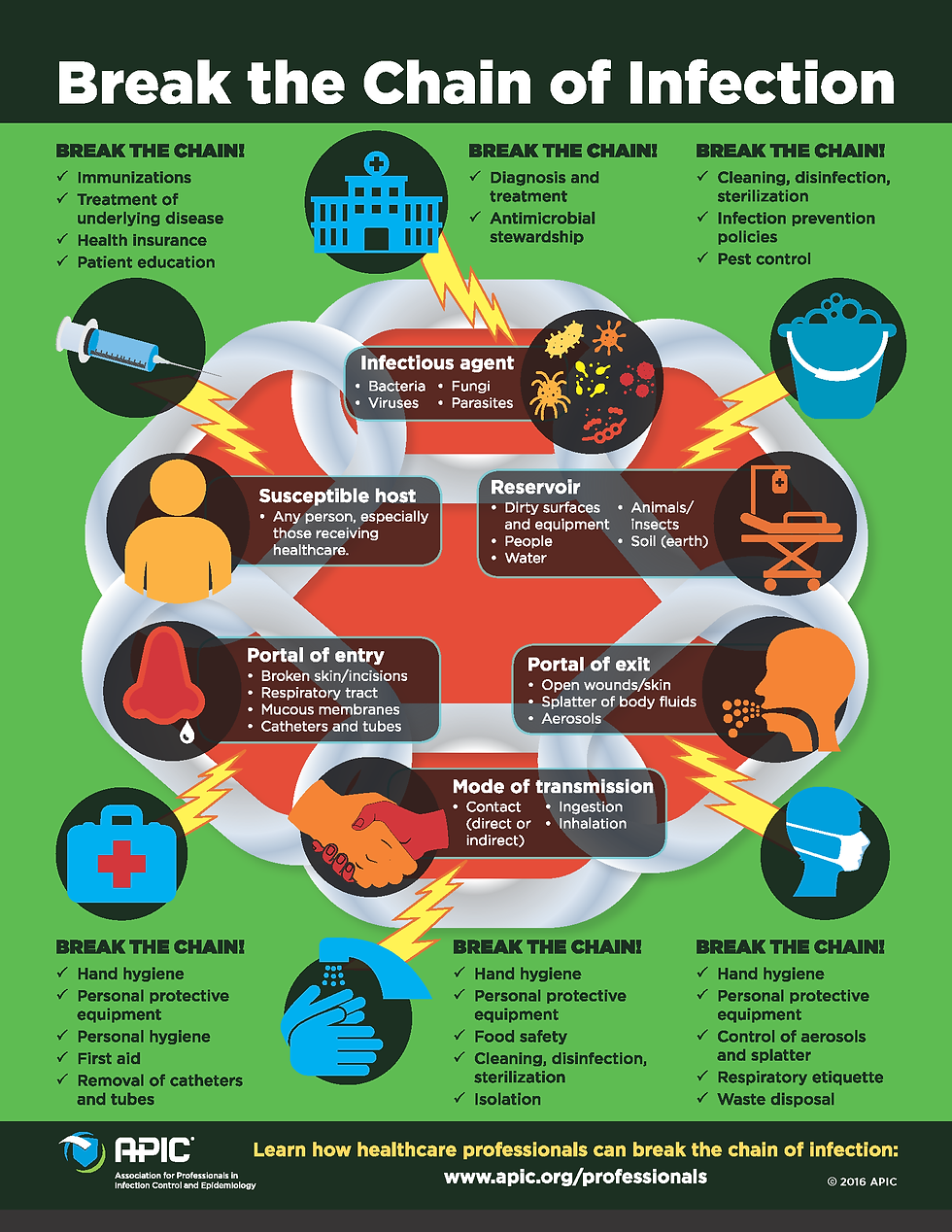Break the Chain of Infection

There are many different germs inside and outside of the healthcare setting. These germs spread in many different ways. For example, germs can spread from person to person and from objects to people. To stop germs from infecting people, healthcare professionals, patients, and families need to work together to stay healthy. Read a new patient guide (in Spanish) on how to prevent infections.It takes a chain reaction of events for infections to spread to others. The way to stop germs from spreading is by interrupting the chain. When you go into a hospital or other healthcare setting to receive care, you become vulnerable to catching infections. But the good news is that patients, their families, and visitors can take steps to prevent infections by simply knowing the top infection prevention basics!Are you a healthcare professional? Learn how you can break the chain of infection in healthcare settings.
The best way to stay healthy while visiting the hospital is to speak up for your care. Don’t be shy. After all, we’re talking about your health. Your doctors, your nurses, and other members of your care team want you to have a voice in your care.So ask questions, voice concerns, and make sure you’re comfortable with the care you are getting while in the hospital or other healthcare facility.
Keeping your hands clean is the number one way to prevent the spread of infection. Clean your hands after using the bathroom; after sneezing, blowing your nose, or coughing; before eating; when visiting someone who is sick; or whenever your hands are dirty.Make sure that everyone around you, including your healthcare providers and your visitors, do too. Did you see them clean their hands? If not, it’s okay to ask them to clean their hands!
Ask about safe injection practices. Safe injection practices are steps that your healthcare providers should follow when they give injections. For example, not using the same needle or syringe on more than one patient.Remember: One needle, one syringe, only one time.
Ask to have your room or equipment cleaned. Keeping healthcare facilities clean is extremely important. It’s very easy for germs to be passed from the surfaces to the hands and to other people.So speak up and ask to have your room or equipment cleaned if they appear dirty or dusty.
Ask questions about the medications that are prescribed to you. Know what they are for, how to take them, how long you should take them, and how often you should take them. If you are taking antibiotics, take them exactly as prescribed, even if you start to feel better.Using antibiotics the wrong way can cause bacteria to grow into superbugs.
Ask about vaccines you need to stay healthy. The majority of Americans who die each year from vaccine-preventable diseases are adults. Vaccines are a very effective way to prevent the suffering (and costs) associated with vaccine-preventable infections.Vaccines are among the safest medical products available. The potential risks associated with the diseases these vaccines prevent are much greater than the potential risks associated with the vaccines themselves.
Know about infection preventionists. These germ sleuths work every day to protect you. Your safety is their #1 priority. They strive to keep you, visitors, volunteers, employees, and healthcare providers safe from infection.Infection preventionists partner with your healthcare team to make sure everyone is doing the right things to keep you safe from healthcare-associated infections.
Become familiar with healthcare-associated infections. Healthcare-associated infections (HAIs) are infections that patients can get while receiving treatment for medical or surgical conditions. No matter where you are—in a hospital, a long-term care facility, outpatient surgery center, dialysis center, doctor’s office, or elsewhere—you are at risk for infections.These kinds of infections are often preventable.






Comentarios